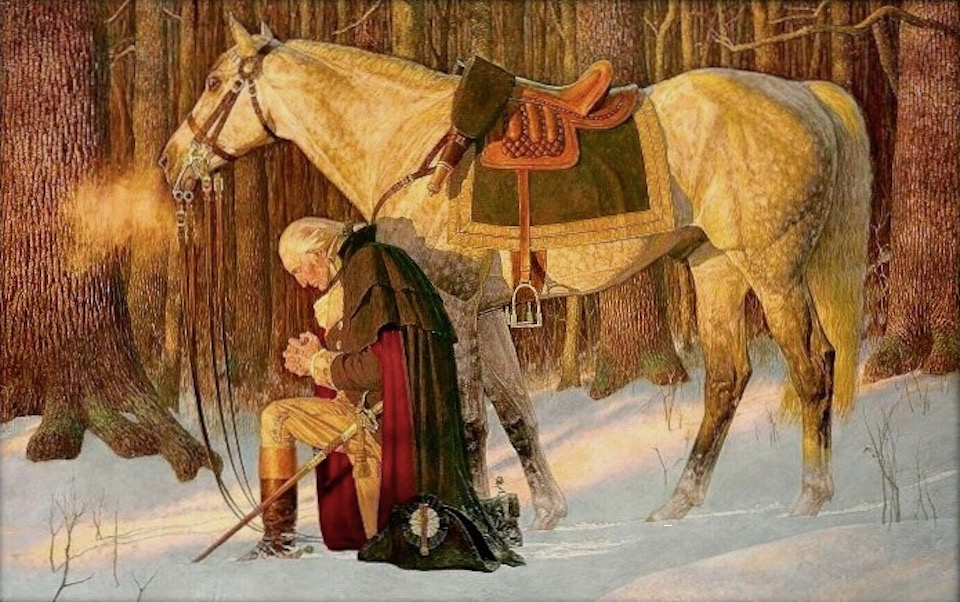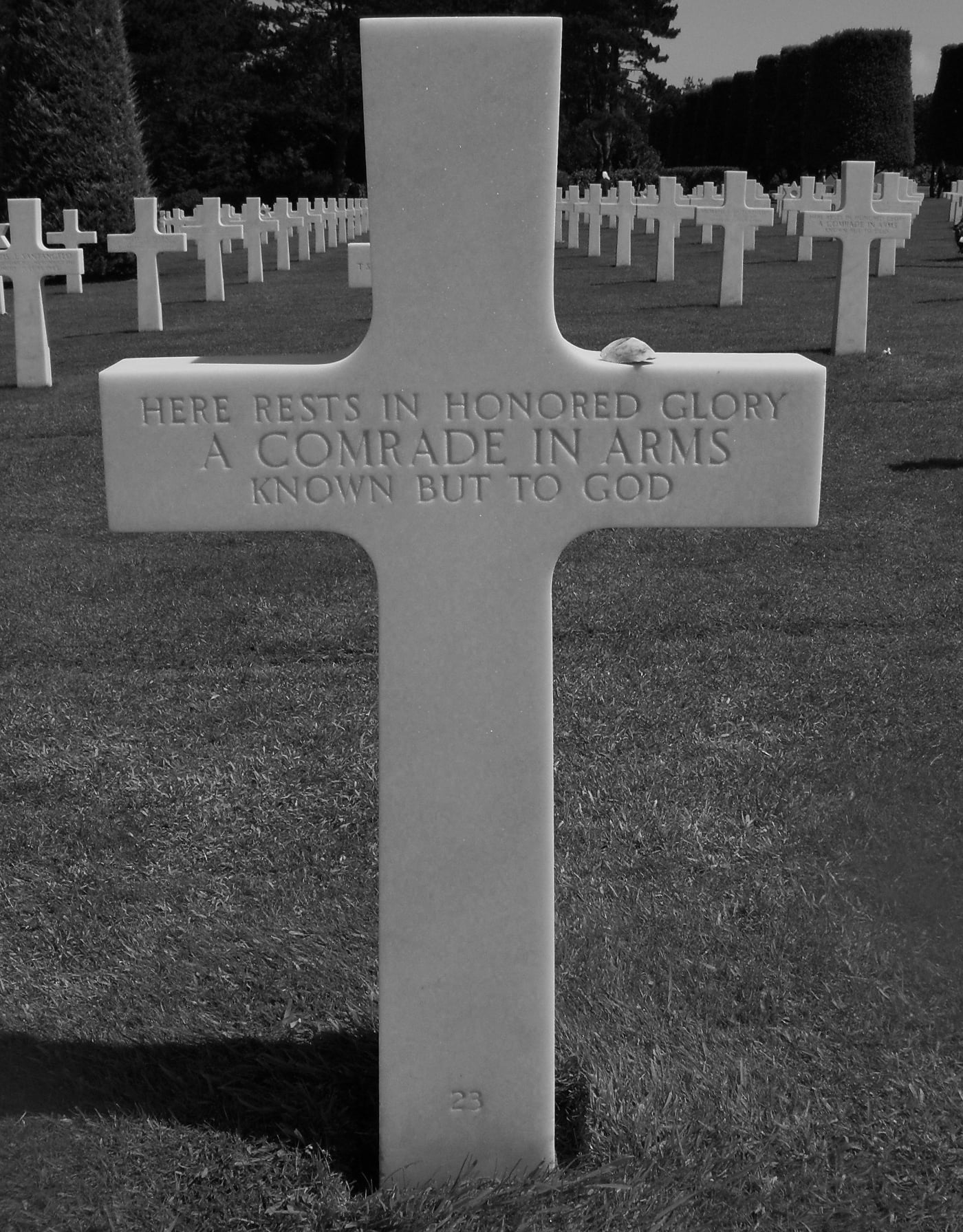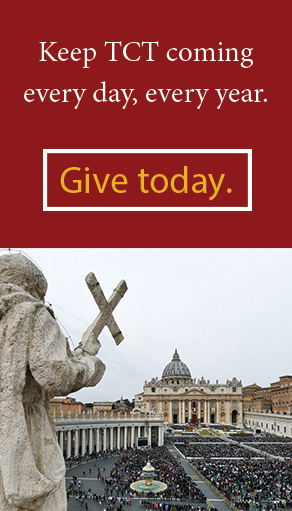The Catholic Thing was founded the week after Memorial Day in 2008, but in eight of the following dozen years, we’ve published a column, either by Robert Royal or me, about remembrance of those fallen in combat. This makes nine.
Our view, being Roman Catholic, is often global, but we are Americans, and we are patriotic. In a column I wrote last year (not on Memorial Day, but one week before), I quoted St. Thomas Aquinas in the context of faddish “woke” anti-Americanism (obviously not what Aquinas had in mind c. 1260 A.D.):
man is debtor chiefly to his parents and his country, after God. Wherefore just as it belongs to religion to give worship to God, so does it belong to piety, in the second place, to give worship to one’s parents and one’s country. (ST IIa IIae, Q, 101, a.1)
That makes me recall the famous Arnold Friberg painting (The Prayer at Valley Forge) of Gen. George Washington kneeling, seeking God’s guidance in the making of America.
My first foray into writing about Memorial Day came in 2009, with a column I wrote concurrent with my older son’s graduation from West Point. Many readers wrote to me, with gentle reproof, that my column was inappropriate, given that the last Monday in May is devoted to remembering those fallen in battle and not to those who may be likely to head into battle – about the dead, in other words, not the living. Yes, but I had also written this about the last cadet parade before graduation:
The music played by the [Army] band echoed around the barracks arches, so that you thought you were hearing the answering sound of marches played by ghosts, welcoming the Class of 2009 into the Long Gray Line that reaches back to 1802 and beyond.
Sad to say, some members of the Class of ’09 who served in Afghanistan or (with my son) in Iraq, have died. Captain Bobby Miner came home safely, as did Marine Corps Captain Ian McCoy, Bob Royal’s son-in-law. Others of their comrades did not.
But as a family matter here at TCT, we take offense at the anti-military posturing of some of our fellow citizens – and not just those on the “Left.” When I told a well-known conservative intellectual that my son was headed to West Point, his response was: “Are you nuts?” He explained, in essence (I was too gobsmacked to remember his exact words): We are the ones who send other men’s sons to war; our sons don’t do the actual fighting.
Memorial Day is when we recall those who did the actual fighting and paid the price, in Mr. Lincoln’s words at Gettysburg, of “the last full measure of devotion.” As the President also said, “we can not dedicate – we can not consecrate – we can not hallow – this ground. The brave men, living and dead, who struggled here, have consecrated it, far above our poor power to add or detract.”

Writing in 2010, Robert Royal noted then-President Obama’s decision not to participate in Memorial Day tributes:
We really shouldn’t be surprised at this, since memory of – and gratitude towards – past benefactors of many kinds, including those who made the ultimate sacrifice, no longer seem to count for much in our society as a whole. Our harried president, like many of us, seems just to want some time alone, which has become harder as government bulks larger in all our lives. [see “The Uses of Memory”]
In a column one year later, “Cara America Nostra,” Bob cited John Adams’ letter about politicians who,
may plan and speculate for Liberty, but it is Religion and Morality alone, which can establish the Principles upon which Freedom can securely stand. . . .They may change their Rulers and the forms of Government, but they will not obtain a lasting Liberty. They will only exchange Tyrants and Tyrannies.
This led Bob to conclude:
We’re no longer a young republic, but a middle-aged empire. Happy talk about the best days lying ahead cannot assuage our fears that mere economic growth, more gadgets and entertainments, can’t help us – indeed, are part of our central problem. But on holidays like today, it’s good to remember that this is America. New births of freedom, Great Awakenings in religion, fresh energies from immigration, are recurrent threads in our story. Pray God they continue to be.
I wrote about this day most recently in a 2019 column, “The Last Full Measure,” which included three photos captioned: “Honored dead: Gettysburg”; “The living”; “The dead.” The first, obviously, was of rows of the grave markers from 1863, and the last was the same, but from the WWII American Cemetery at Normandy, France – consequence of D-Day. The middle shot was of the groom and groomsmen at my older son’s wedding a few weeks before the column appeared. He’s in the center flanked by comrades and friends, including his younger brother. Five of the eight had been soldiers; one still is.
The origin of the holiday was, of course, the Civil War, somehow melancholic yet triumphal in memory. At other times – the end of the Spanish-American War or World Wars I and II, Korea and Vietnam, the Gulf War, and the wars in Afghanistan and Iraq – the national mood has swung from pride to cynicism. For all that – and in all we’ve written here over the years – this has seemed to me the best evocation of properly ordered memory:
And, if you are the least bit cynical about either American adventurism or isolationism (and who is not?), consider the reverent words of General Mark W. Clark inscribed on a wall in the Visitor’s Center at that Normandy cemetery:
If ever proof were needed that we fought for a cause and not for a conquest it could be found in these cemeteries. Here was our only conquest: All we asked. . .was enough soil in which to bury our gallant dead.
Noble words, of which there are too few these days, to remember noble deeds – and souls.

*Image: The Prayer at Valley Forge by Arnold Friberg, 1975 [National Portrait Gallery, Washington, D.C.]. Note that the link in the painting’s title will take you to the NPG but the painting itself is not shown. That’s because it’s currently on loan to the Museum of the Bible, also in Washington, D.C.

















